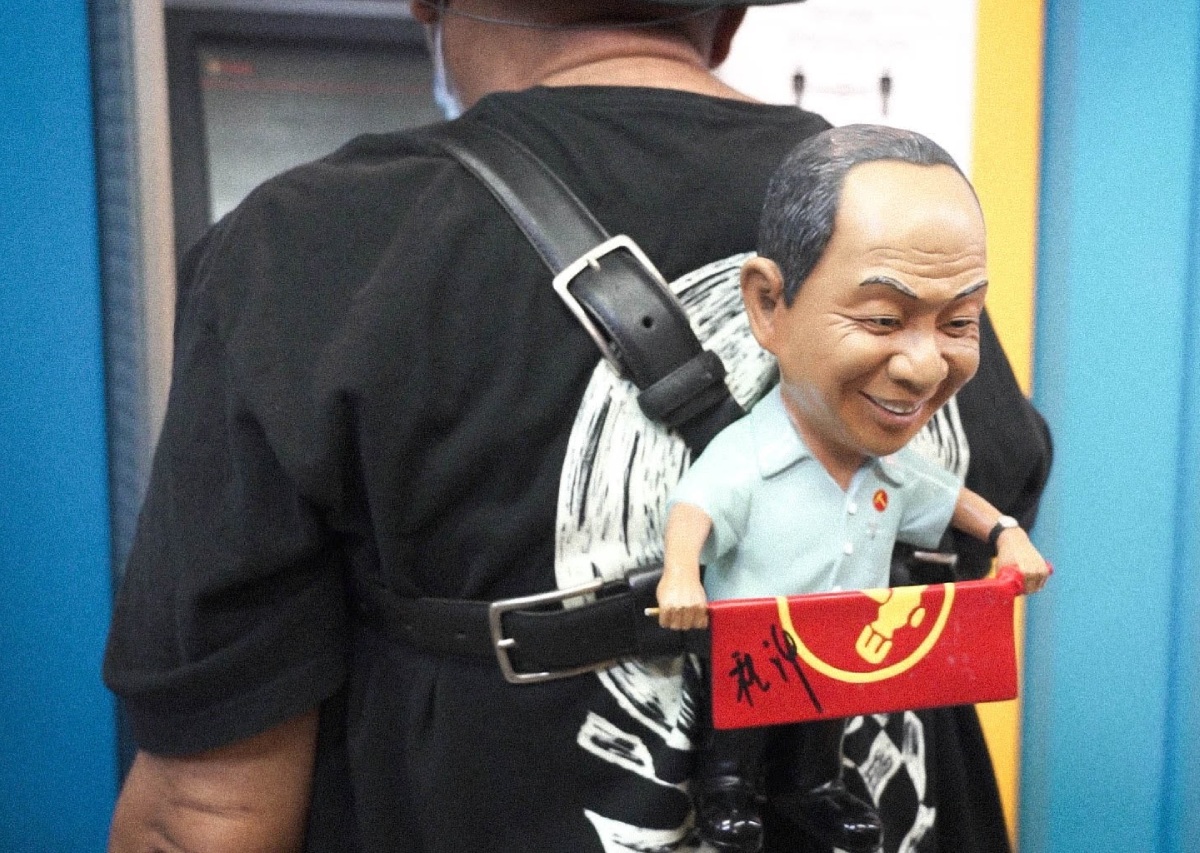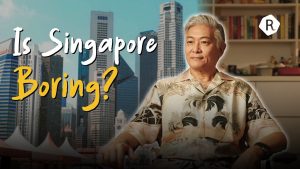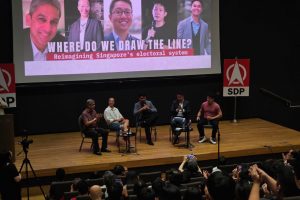Top image: Zachary Tang / RICE File Photo
Watching the Hougang documentary, produced by the Workers’ Party and released on November 3rd, I teared up. Then, I watched it for another 10 minutes and started feeling pensive instead.
I grew up in Hougang SMC and/or Aljunied GRC, depending on how the lines were drawn that electoral cycle. I’ve heard lots about its history, both as a neighbourhood and as a political ward.
The old people in my family maintain this: Hougang is an opposition stronghold because the government supposedly made the Teochews very angry many years ago, and Teochew people have held a grudge since.
I can’t testify to the veracity of that, but I can say this: The documentary makes me feel a little cool for living in an opposition ward, no matter how unfounded that feeling may be.
The documentary is a retrospective on Hougang’s history, both as a political and cultural entity. Hougang is near and dear to the WP—it’s where they’ve celebrated their biggest election wins.
It was released to coincide with the Workers’ Party’s 67th founding anniversary, and to that effect, feels like a victory lap—it features prominent WP MPs who have served in Hougang SMC, and of course, the superstar himself, Low Thia Khiang.
In a way, Low Thia Khiang reminds me of Lee Kuan Yew. Mr Lee once said: “Even from my sickbed, even if you are going to lower me into the grave and I feel that something is going wrong, I will get up.”
Low Thia Khiang takes this dedication even further. Even after stepping down as WP’s leader and retiring from electoral politics, he hasn’t left, and is a regular fixture on walkabouts.
So maybe I’m not being a very good Hougang resident when I say this, but I wonder just how far Low Thia Khiang’s star power can continue taking the WP forward.
Hougang’s Superstar
Obviously, a Workers’ Party documentary about Hougang wouldn’t be complete without Low Thia Khiang’s input. But the gratuitous clips of his 1991 victory in Hougang SMC–interspersed with snippets of his Teochew rally speeches–make the documentary feel slightly indulgent when it takes viewers away from the walk down Hougang memory lane.
But it is touching on the right nostalgic beats, if the comments section is any indication. Commenters talk about how much they admire him and how good of an MP he was.
He’s ridiculously popular in Hougang. Every Teochew person above 40 has a story about the Low Thia Khiang.
I hear anecdotes about his legendary Teochew rally speeches from back in the day and about how he allegedly started the MP tradition of attending void deck funerals. He hasn’t campaigned as a candidate in a good while, but he’s been seen at neighbourhood walkabouts.
His presence is strategic. Bringing Low Thia Khiang around reminds people: Hey, remember him? Remember how good things were with him? He lends legitimacy to any fresh faces because Low Thia Khiang has a track record; he’s someone you can trust.
The Good Old Days
Various WP members and Hougang residents come onscreen to reminisce about Hougang, heightening the emotional stakes considerably.
“After moving to HDB, you don’t see [the kampung spirit] any more. But in Hougang, you see [it],” Mr Png Eng Huat says against a backdrop of thoughtful instrumental music. Photos from the ’70s and ’80s flit across the screen–people selling fish by the roadside, black and white shots of the old market.
To me, at least, the documentary is dual-purpose. It’s a retrospective on Hougang and its people, but it’s also a political piece laced with tactful reminders of the WP’s successes. Two birds, one stone. While you’re here reminiscing over Hougang, stay for a while and listen to how good we are at administrating it…
I can’t blame them. Nostalgia is a powerful thing; a documentary rehashing the WP’s most potent political successes is free real estate to curry some pre-election support.
And there is material to work with. Hearing about how Low Thia Khiang worked past the setbacks he faced as an opposition MP, about how he forked out his own money to get a footpath built for his constituents–it is impressive, and it lends a measure of credibility to WP’s commitment.
Neither is the WP alone in wielding nostalgia for political support. I see the PAP capitalising on nostalgia in equal measure–for instance, in collectivising moments like the death of a statesman, which had an acknowledged impact on that year’s GE.
Our political parties may be more similar than we think, both in their gaffes and how they craft their messaging.
But it’s been shown that different sects of voters may be influenced to different degrees—the effect of nostalgia isn’t uniform. It’s probably more challenging to make people nostalgic for something they weren’t around to experience, for one. Which is where creating physical reminders comes in.
To Memorialise Or Not
In and of itself, there’s nothing inherently wrong with nostalgia. I enjoyed the Hougang documentary. It tapped into that misty-eyed part of me that’s always wanted to know more about the place I grew up, and it’s a comforting tribute piece to the people of Hougang.
In the same vein, there’s nothing wrong with remembering our past: I’m just not sure if all of it deserves physical monuments to their memory. It feels like some of this should just be left behind. There’s only so far back you can reach into your past before the issues of the present catch up.
Low Thia Khiang can endorse the next group of WP candidates, but he won’t be there to answer questions fielded in Parliament. He won’t be the one formulating and raising questions to the government for WP’s constituents.
And I don’t think any political party can keep leaning on the people who remember the good old days. The people who do remember aren’t going to live forever. The people who don’t are going to ask what comes next.
A good portion of the electorate may very well have had their trust in the WP shaken by perceived moral infractions, or outright lies. I’m sure they’ll have to work hard to recoup any goodwill they’ve lost. And while Low Thia Khiang might be that implicit assurance that not all is lost, the actual candidates–should be the ones to lead the effort.
Who knows, it might be a proving ground for their new appointees. And maybe they can keep an eye out for another snap-viral cockles moment.
Of course, it’d be remiss to act like the Hougang documentary is the bulk of their campaign strategy. When all’s said and done, Low Thia Khiang appearing in one documentary won’t be enough to win a seat in Parliament, and the WP obviously knows this.
I’m sure they have more up their strategic sleeve as GE2025 draws near.
Because Low Thia Khiang’s right: Hougang people aren’t so easily swayed.
Editor’s note: This article has been updated for clarity.






